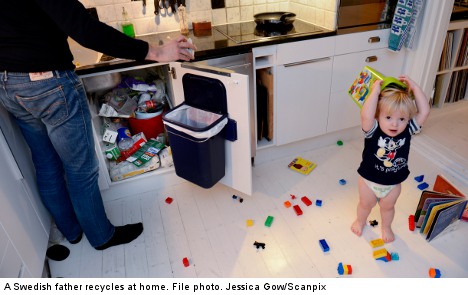Sveriges Radio (SR) reports that only two of Malmö’s ten city districts have introduced food waste schemes, meant to take leftovers and turn them into biogas. Yet the political pressure is on for everyone to get in line, as the city decided in 2011 that all households should learn to recycle rather than toss leftover or out-of-date food.
Ingela Morfeldt at waste managers VA Syd told SR that plastic from food packaging was among the most frequent debris found in food waste recycling.
“The oddest thing we found was part of a kitchen table that someone had smuggled into the container, which you can’t really call food waste,” she said.
She confirmed that the municipality had in principle said yes to a proposal that would slap a fine on property managers whose tenants failed to get their trash in order.
“But we are talking about notoriously bad recycling mistakes,” she said. “We prefer to have a dialogue with the property owner, so this additional fee would be the absolute last step.”
SR reported that Malmö residents throw away 33,600 tonnes of food every year. The city has as its aim to take at least 40 percent and turn it into biogas and fertilizer.
For repeat recycling offenders, however, a fine of 400 kronor ($62) could now be on the horizon, if an initial barrage of letters and telephone calls fell on deaf ears.
The Local/at



 Please whitelist us to continue reading.
Please whitelist us to continue reading.
Member comments